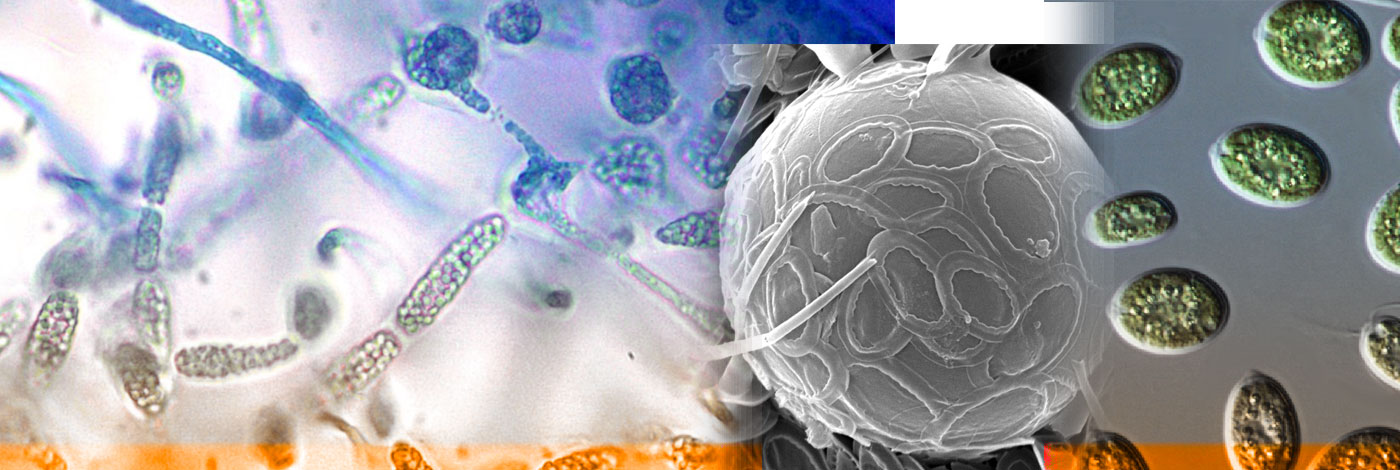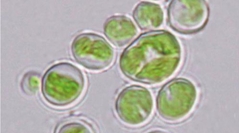

 Cryptogamie, Algologie
39 (1) - Pages 23-34
Cryptogamie, Algologie
39 (1) - Pages 23-34The Watanabea clade of the Trebouxiophyceae includes unicellular coccoid green microalgae that mostly thrive in subaerial microhabitats. Recently, a number of new genera and species were described on the basis of the DNA sequence data and morphological observations. The peculiar genus Phyllosiphon, which forms a monophyletic clade within the Watanabea clade, is characterized by forming siphonous parasitic stages thriving in the leaves of the Araceae. In addition, several previous studies demonstrated that members of the genus Phyllosiphon also include free-living chlorelloid individuals that occur on various subaerial substrates.Anumber of Phyllosiphon members sampled from European subaerial microhabitats have so far not been taxonomically described, because they were not available in cultures. In this study, we provide a taxonomic description of a new species of the genus Phyllosiphon, P. duini, isolated from a corticolous biofilm growing on Quercus pubescens in a sub- Mediterranean forest stand. The simple chlorelloid morphology of this strain did not unambiguously distinguish Phyllosiphon duini from other closely related members of the Watanabea clade. However, phylogenetic analyses based on the 18S rDNA sequences showed that this species clustered in a sister position to a Phyllosiphon species previously described from eastern Asia. Similar phylogenetic pattern was also supported by the plastid-encoded rbcL gene sequences of members of the Watanabea clade. Our data demonstrate that the genus Phyllosiphon represents a diverse phylogenetic lineage within the subaerial chlorelloid green microalgae of the Watanabea clade.